Soapmaking
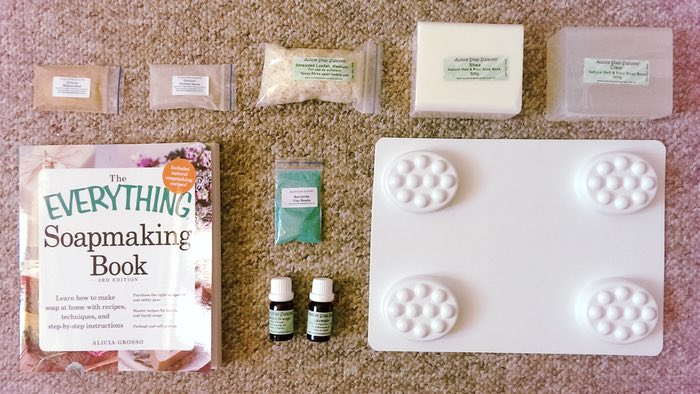
In 2015, I got curious about making soap, the history of soap, the science of soap, regard for soap in various cultures. It was Dwarf Fortress that got me interested. I love games where you start with nothing and eke out a civilisation using wit and wilderness (and as much beer as you can brew without your villagers starving to death). Soap is one of the manufacturable items in game. You take fat from butchered livestock and lye made from furnace ash, then come out with this vital commodity in dwarven healthcare.
In preparation for the apocalypse, I wanted to know how to make stuff that'll keep my underarms clean. So I ordered the "Scrubby" starter kit and a book on soap-making from Aussie Soap Supplies here in WA.
Melt and pour
The kit came with pre-made soap, where all the lye had already been used up in the original saponification process. To make a nice bar of end-user soap, you simply melt the pre-made stuff, mix it with lovely things - oils, fragrances, grits, butters, etc. - and pour it in a mold to set.
Starting simple gave me a feel for ingredient and mixture textures, and how they behave throughout the process. And it got my head around good hygeine and safety practices well ahead of using caustic, hazardous lye.
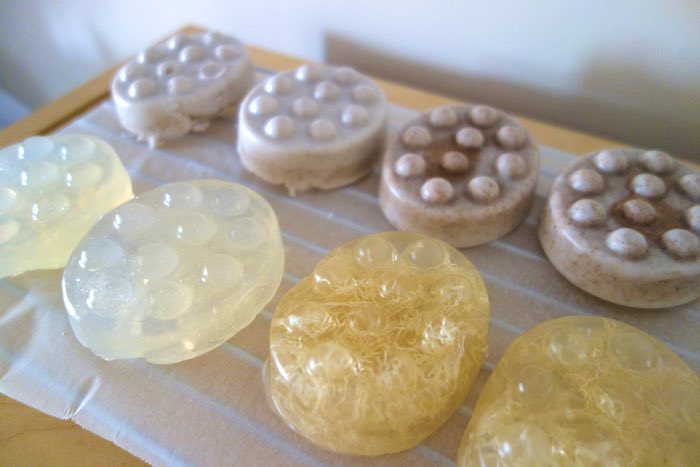
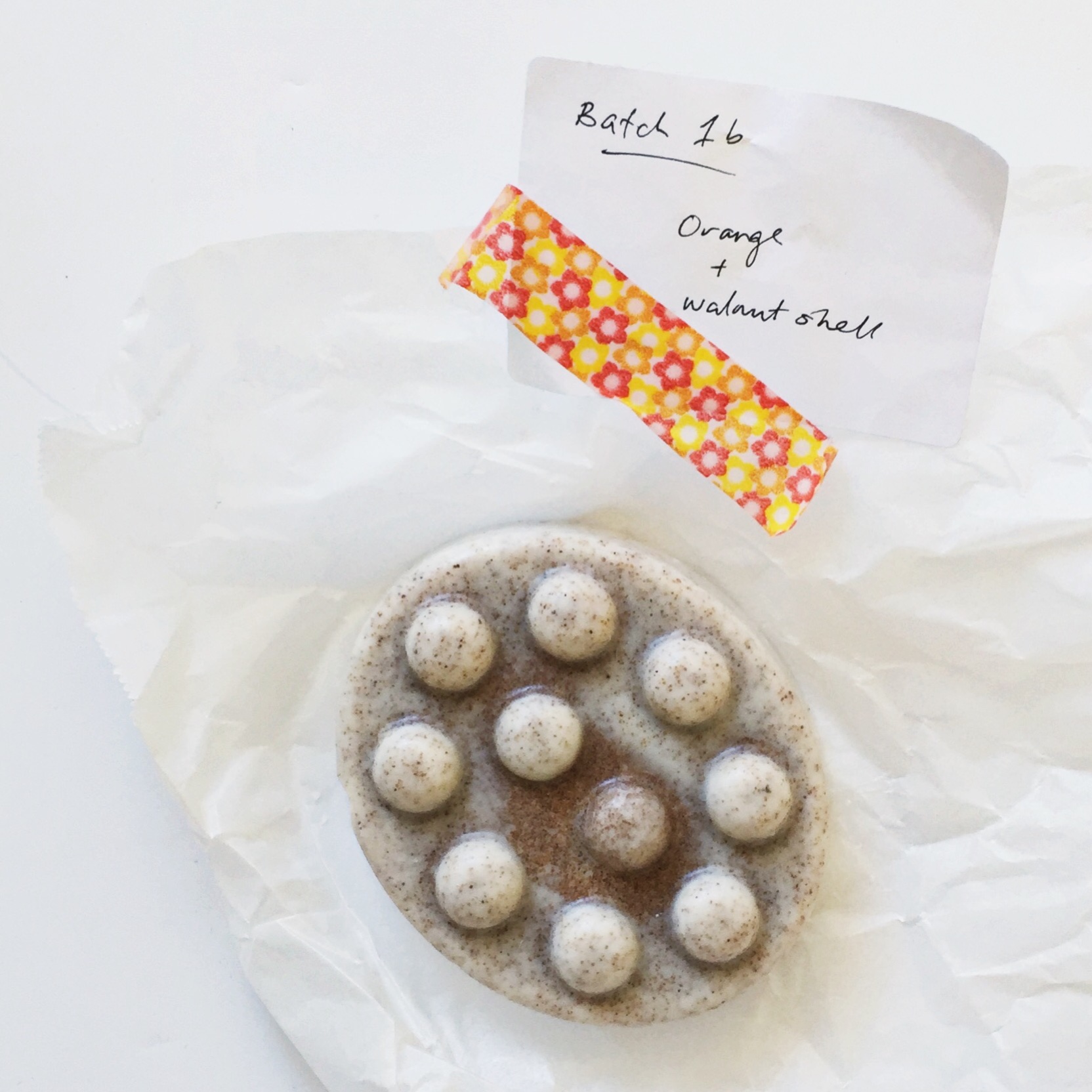
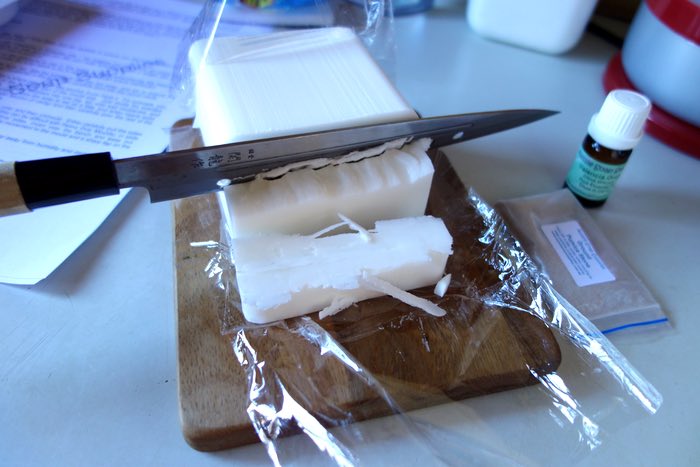
Cutting pre-made melt-and-pour soap.
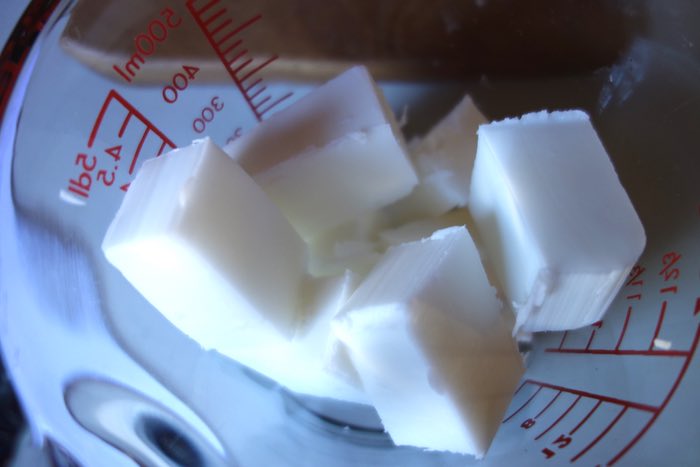
Soap chunks in a microwaveable container.
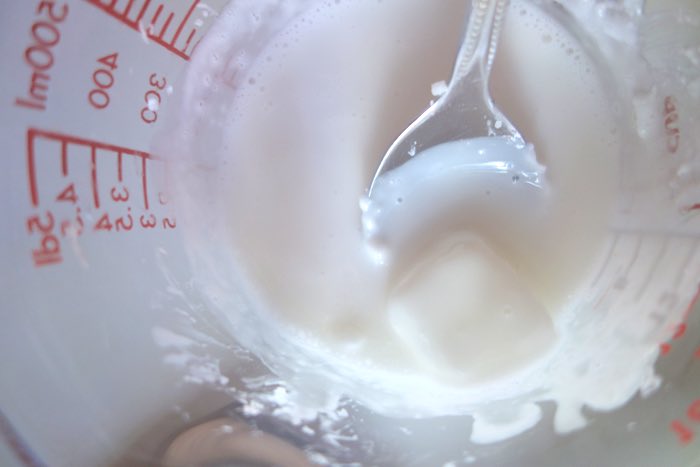
Partway through short-burst microwave melting.
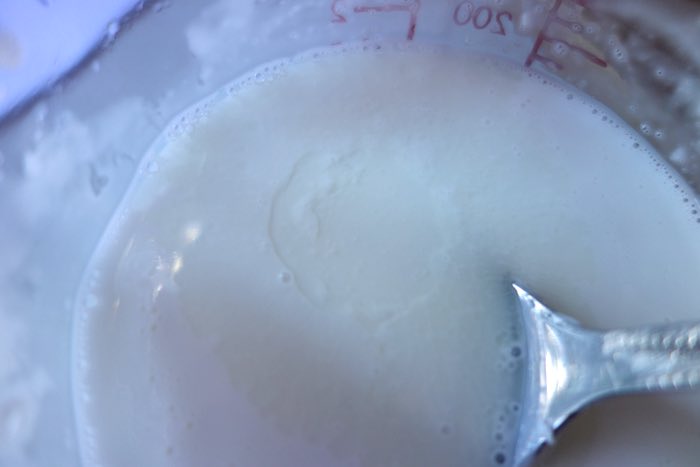
Melted soap with orange essential oil. This is when you add the scrub powders too.
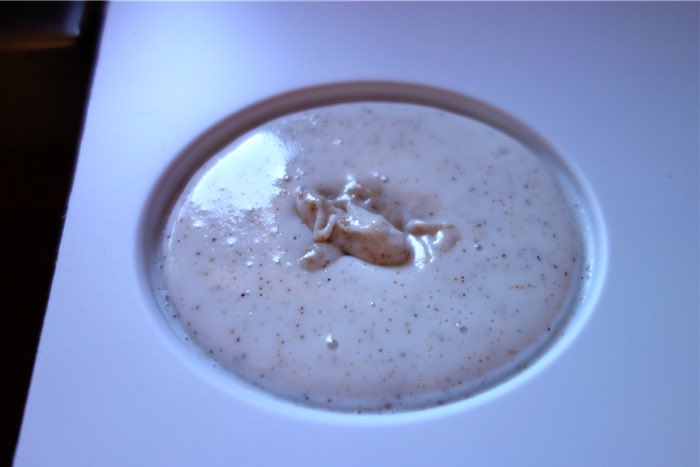
Molten soap poured in a mold.

Soaps cooling on a rack. They were left for 48 hours (though I'm not sure if this is actually necessary for melt and pour soap).
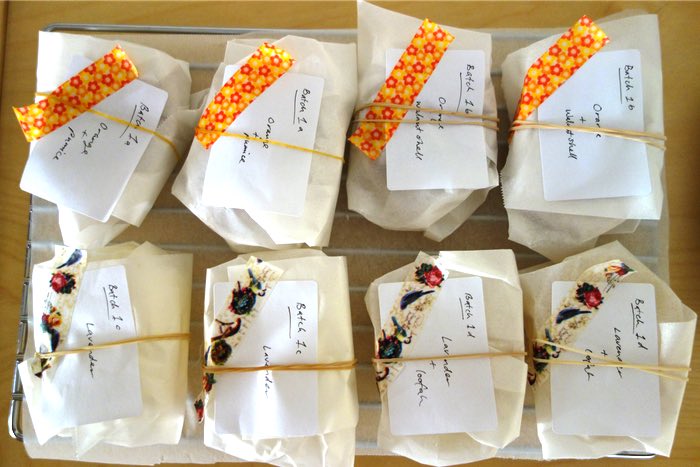
Wrapped and ready to be gifted to my lovely friends! Baking paper is not good for wrapping, as washi tape doesn't stick to it.
The melt and pour method is 100% simple soaping for newbies and children (with adult supervision).
Cold process
Coming soon.
Soapmaking notes
Coming soon.